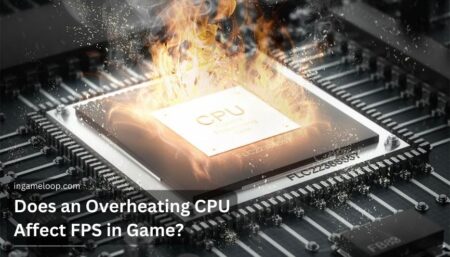![Is an Intel Celeron Processor Good? [2024]](https://www.ingameloop.com/wp-content/uploads/Is-an-Intel-Celeron-Processor-Good.jpg)
Intel Celeron processors are very famous nowadays, and every enthusiast likes these masterpieces for several reasons. But it wasn’t always the case. Many tech users were confused regarding selecting these processors. Even in a documentary on Urban Dictionary back in 2006, an author wrote, “Anyone with a Celeron in their computer clearly has no idea what they are doing.” It was pretty accurate then, but now these chips have taken their actual space among the user and the computer market.
The Celeron processors range in the market from the 4th-generation computers and have got popularity as Intel’s cheapest addition. These have limited features and specifications then the brand’s Pentium and Core lineups but are known for excellent value. No doubt, many mini PCs, laptops, Chromebooks, and tablets use these. Still, the real question is, is an Intel Celeron processor good? Well, if you’re really interested in knowing the answer, be with us until the end of this post.
Key Takeaways
- An Intel Celeron processor is a low-end CPU that is suitable for basic tasks like web browsing, email, and office work.
- Celeron processors have lower clock speeds, cache sizes, and features than other Intel CPUs, which makes them less powerful and efficient.
- Celeron processors are cheaper than other Intel CPUs, which makes them attractive for budget-conscious consumers and manufacturers.
- Celeron processors are not good for gaming, video editing, or other demanding tasks that require high performance and graphics.
- Celeron processors can be upgraded to other Intel CPUs, but this may require changing the motherboard and other components as well.
What specs do you get in the Intel Celeron processors?
There are several Intel Celeron processors out there in the tech market with some excellent and not-so-excellent features and specifications. In this section, we will look at some of these processors’ most essential specifications. Firstly, let’s look at some common grounds between all additions. All the Intel Celeron family shares the same number of 2 cores and 2 threads without having hyper-threading or multi-threading. Such a cores and threads count is meager compared to the other available options in the market.
All the rest aspects can vary from processor to processor in the family. The base clock speed can vary between 1.60GHz to 3.60GHz, and the TDP value can go from 25W to 58W depending upon the model. Moreover, there are many versions in the Celeron family; some come with 2MB cache memory, and few latest ones have even 4GB Intel Smart Cache for more performance. Depending upon the model, there is a broad set of socket ranges, but you must check what your chip has and then check the volatile memory support.
These specifications and features are acceptable for a chip made for primary usage, but there are also some limitations. We can only use them for basic office automation tasks with a bit of load, such as office word processors. It’s evident that the brand’s main motto for manufacturing this family is to keep the cost as low as possible but not the performance. So if your needs are simple and not much complicated, you can go for these processors.
Is an Intel Celeron processor good?
A Celeron processor’s goodness depends entirely on your usage and budget. Suppose you want a starting-pack computing system at an affordable price. The Celeron chip is a perfect choice for you. In contrast, if you’re one of the enthusiasts who play games or do content creation on their PC, you must be away from these processors. These aren’t made to tackle such kind of hefty loads or go through thousands of files simultaneously. Instead, you can consider Celeron processors for ordinary internet browsing or watching movies.
Benefits of Celeron Processors
Perfect for light usage: These processors’ first and most important aspect is that they are made for primary and lightweight tasks. Hence, if you want to use the system for multimedia tasks or to browse through the internet, then no look around. But these are not for gaming, rendering, or content creation.
Affordability: Another notable aspect of most of the Celeron Processors is that anyone can afford these due to their lower price. Most budget-conscious CPU buyers prefer these silicon chips instead of the other Core because of the price difference.
Compatible with SSD: No doubt, Celeron processors are made for basic and lightweight usage, but the regular hard drives don’t work well with these processors and can’t provide you with enough speeds and efficiencies. But you can get next-level performance from these chips by connecting good-quality SSDs.
Downsides of Celeron Processors
Limited usage: Firstly, these processors are made for basic purposes like browsing the internet and multimedia uses, not for higher-end purposes like gaming or content creation. Secondly, these chips use old sockets for connectivity, limiting the compatibility and, ultimately, the usage.
No hyper-threading or multi-threading: In hyper-threading, a processor can split a single core into two, resulting in more performance. But Celeron processors lack this feature where the other Core and Pentium have it. So, this is another reason that directly impacts the performance and selection of the user.
Not a future-proof option: The Celeron processors are not future-proof options since they can’t bear much load. All the applications and programs are being updated day by day and taking more load than their previous versions. I think this is another downside of these chips.
Conclusion
We have checked the various types of Intel processors from the Core and Pentium family with the Celeron family. The Celeron processors lag in most aspects, including performance, speeds, compatibility, and features. You can’t use these in heavy-load conditions since these are not made for primary computer usage. If I simplify my answer to your question, is an Intel Celeron processor good, it would be no–it’s suitable for basic usage. Still, there is no basic usage in the current-era tech world.
In addition, there are some positive aspects of the Celeron processors as well. They are inexpensive, and every type of user can buy these chips without breaking the bank. You can utilize it for internet browsing, multimedia usage, and more. If you are not related to content creation, games, programming, and development, this may be a good option for you. In contrast, if you can afford a good-quality Pentium or Core chip, then I suggest you go for it rather than sticking to a Celeron processor.
Frequently Asked Questions
Is an Intel Celeron processor good?
Suppose you’re looking for the best budget option. In that case, the Intel Celeron processor is a good choice since it offers the best value for money. In contrast, you can use these dual-core processors for games, content creation, and rendering, but they are perfect for basic uses like internet browsing, multimedia, and reading.
Which is better: Intel Core or Celeron?
Intel Core series is obviously better than the Celeron family in terms of performance, speeds, features, and advanced technologies but lags in terms of price. The Celeron processors are available at a much lower price than Intel’s Core chip but compete in terms of load-handling capabilities.
Is Core i3 better than Celeron?
The short answer is yes. The Intel Core i3 family carries the same number of cores, two, as the Celeron family. However, it takes advantage of the higher clock speeds, advanced architecture, cache memory, and various other factors to be more appropriate than the Celeron family.
Why is Intel Celeron so Cheap?
If we look at the internal structure of Celeron processors, these come with only the necessary cache and a very lesser number of PCIe lanes. Therefore, there are quite easy to manufacture if we compare these with their competitors like Intel Core CPUs with better and more difficult manufacturing methodology.






![Is Intel Xeon Good for Gaming? Explained [2024]](https://www.ingameloop.com/wp-content/uploads/Is-Intel-Xeon-Good-for-Gaming-450x257.jpg)